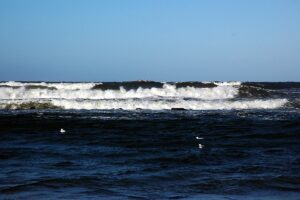Preparation works for building Nord Stream 2 caused serious environment pollution on the coasts of Baltic Sea in Eastern Germany, but the consortium receives agreements for building the contested pipeline from various countries. The works on the gas directive, which would subject this project to EU law are stuck in the European Council. We asked Reinhard Bütikofer, a German MEP from the Greens about these issues.
BiznesAlert.pl: How do you evaluate what happened lately on the beach near Greifswald, where construction of Nord Stream 2 caused the pollution by grease lumps?
Reinhard Bütikofer:The environmental pollution in the Greifswalder Bodden by greases, for which the Nord Stream 2 consortium is responsible, shows their frivolity and recklessness in dealing with environmental concerns. The whirl in dealing with this pollution is also remarkable. It took 11 days for the Nord Stream 2 consortium to finally take the responsibility. The regional Minister of the Environment pointed out at his press conference on 4 June that the water authorities had not been provided with necessary and immediate information.
What stage are the work on the gas directive at?
The European Parliament’s Industry Committee adopted the Buzek Report on the Gas Directive reform on 21 March by 41 to 13 votes. From the side of the Parliament, we are ready to start the interinstitutional negotiations with the Council. Disagreements within the council are the reason of the delays.
What environmental reservations do the Greens in Germany have against Nord Stream 2?
Locally, the construction of the pipeline violates important nature protection interests. Regionally, that is to say with regard to the Baltic Sea region, there are considerable risks in terms of marine protection. Across Europe, the pipeline is cementing the EU’s dependence on the fossil fuels, which runs counter to the European Union’s energy policy, which foresees an ecological reorientation towards a responsible climate policy.
Interview conducted by Michał Perzyński








